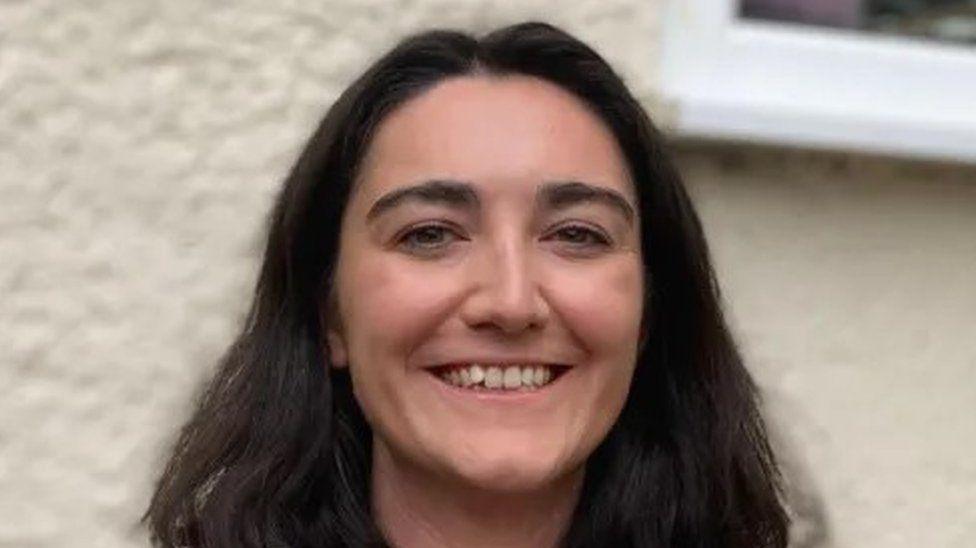Couple says council let down daughter over care
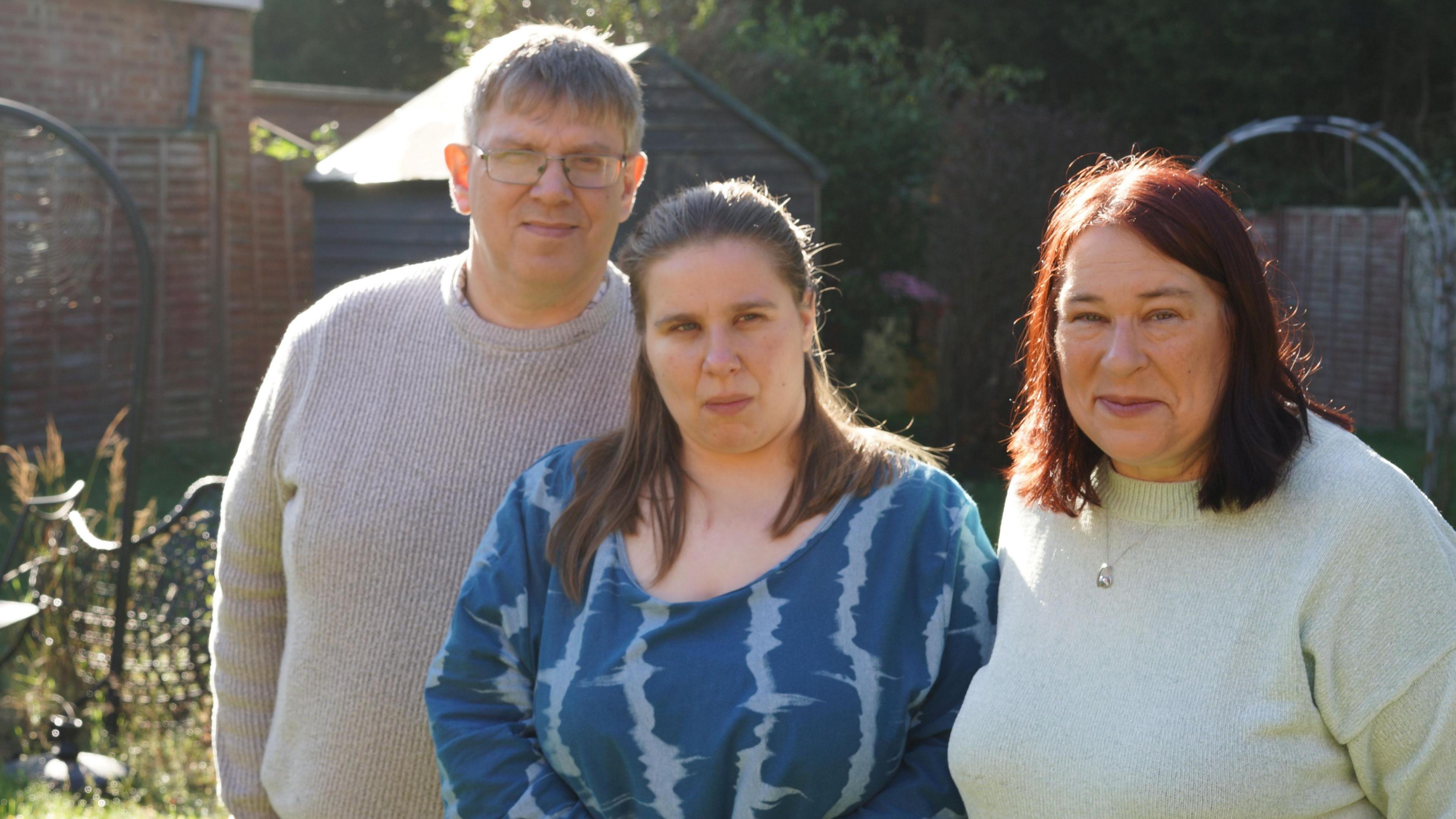
Adrian and Judith Winckles said their daughter Dawn (centre) became distressed after her one-to-one care hours were reduced
- Published
A couple whose 29-year-old daughter has a severe learning disability said they felt "continually let down" by the council responsible for her care.
Adrian and Judith Winckles moved their daughter Dawn into their bungalow in Little Abington, Cambridgeshire, in July after discovering her care hours had been "radically cut".
Miss Winckles' one-to-one care hours were reduced from 13 hours a day to less than four when she moved between out-of-home facilities in May.
Cambridgeshire County Council said work was under way to "identify longer-term care and support arrangements" for Miss Winckles.
Miss Winckles spent a decade at a supported living facility in Yaxley, near Peterborough, 46 miles (74km) from the family home, where she had 13 hours of one-to-one care each day.
This would be used for support with tasks such as preparing meals, going into the community, social time and learning new skills.
Miss Winckles was said to have "limited awareness" of dangers in the home and needed the help of staff to ensure her safety, according to a recent assessment of her needs.
The assessment also saidshe needed help accessing the community to avoid "social isolation and mental health deterioration".
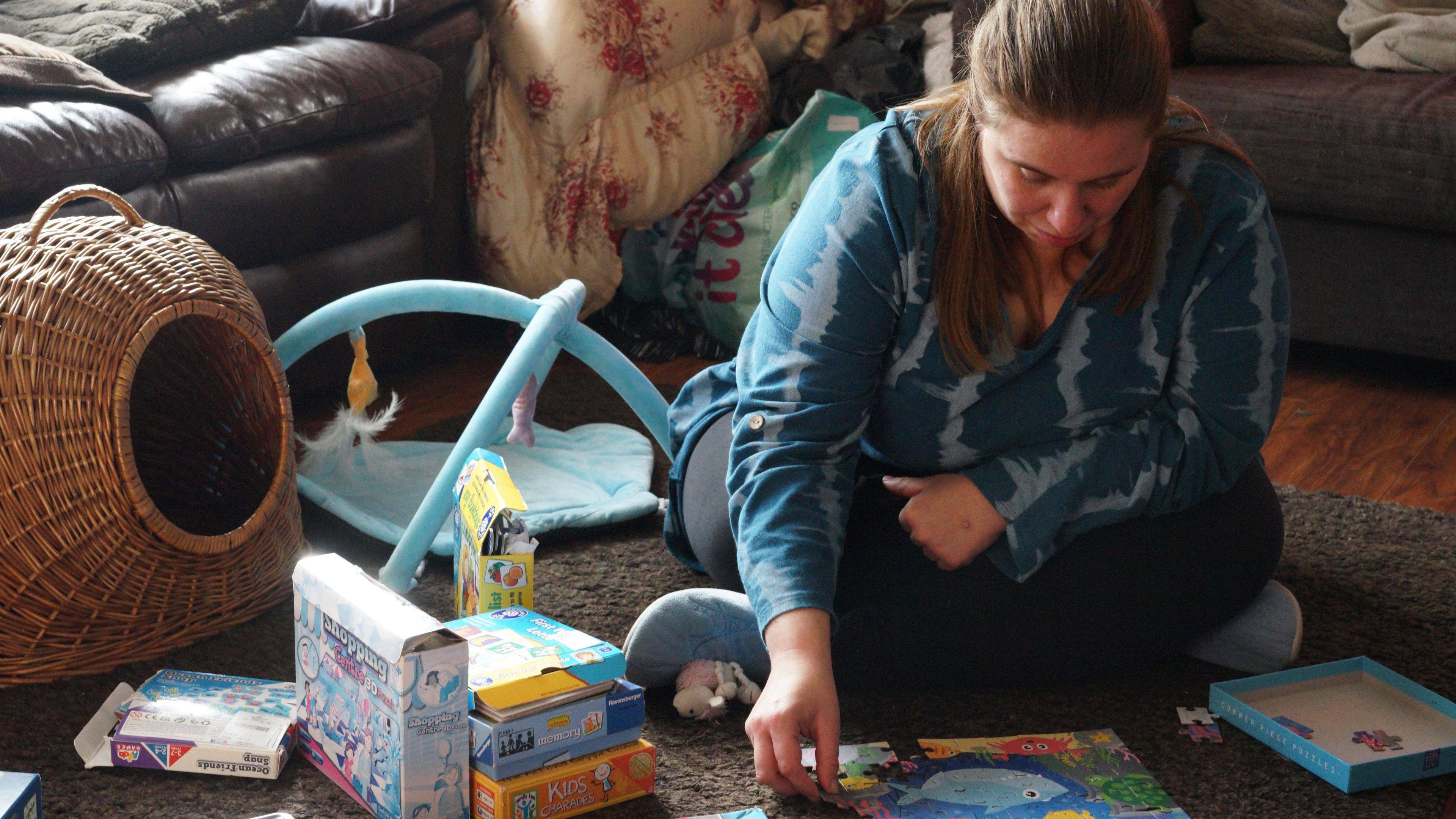
Miss Winckles has been living at home with her parents as full-time carers for the past three months
In May 2024, Miss Winckles transferred to a residential care home in Thaxted, Essex, about 16 miles (26km) away from the family home.
A few weeks in, Mr Winckles, 54, and Mrs Winckles, 57, began getting distressed calls from their daughter, including in the middle of the night.
"She was asking us to do different activities, getting very wound up and in a state, and we realised something wasn't right," said Mrs Winckles.
The couple were sent a document showing her one-to-one care hours were limited to 24 hours a week, or 3.4 hours a day.
The care provider explained that its "core package" covered shared care, but that any additional one-to-one hours needed to be funded on top.
"Had we known this we would never have moved her or put her in that situation," said Mrs Winckles.
The couple brought their daughter home, where they have been providing round-the-clock care for the past three months.
"We don't get time to breathe, because we're constantly caring," said Mr Winckles.
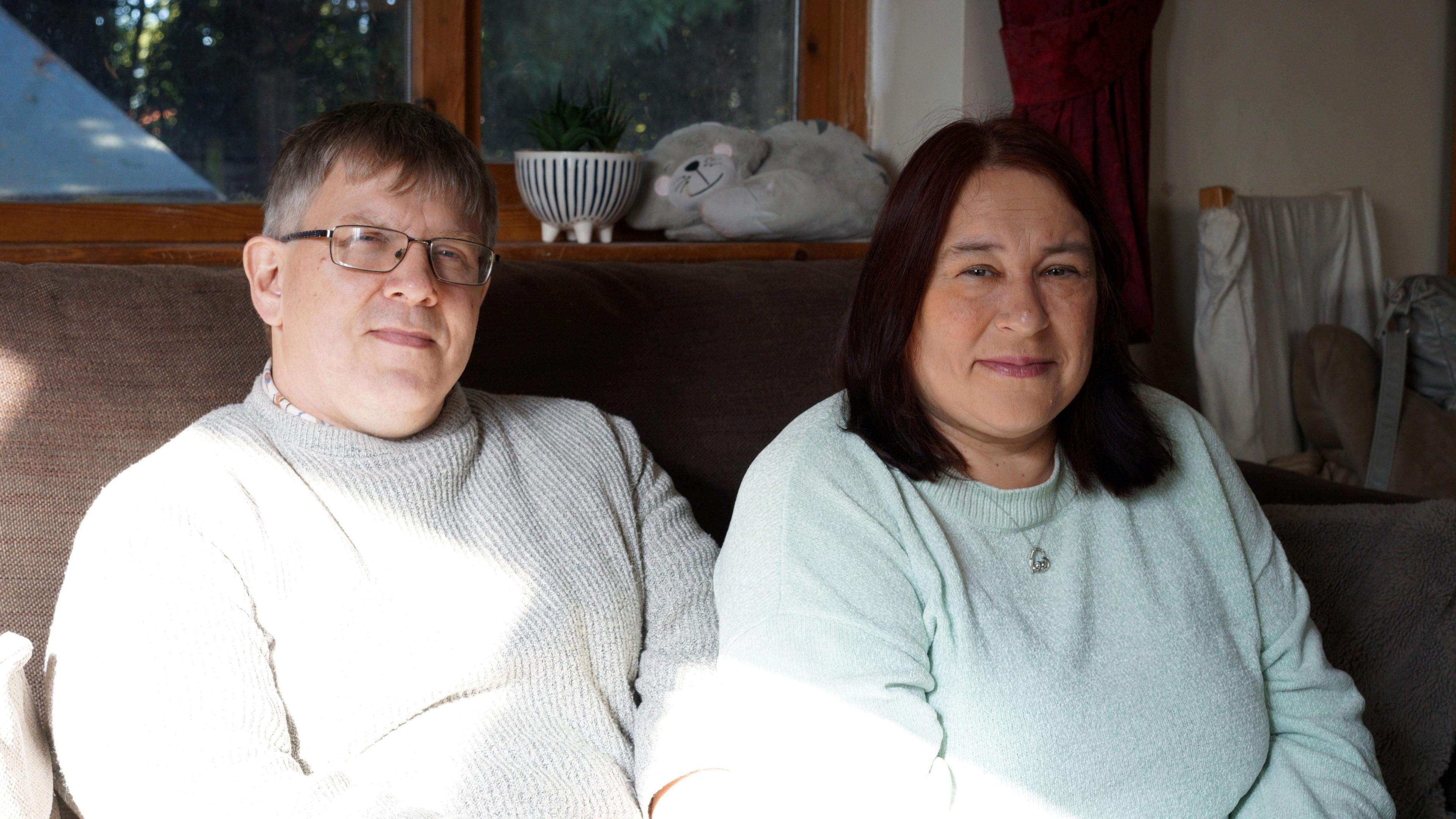
The couple said their daughter's one-to-one care hours were "radically" cut without them knowing
Local authorities in England, Wales and Scotland are responsible by law for adult social care, but the cost of providing this support is increasingly putting pressure on council budgets.
Cambridgeshire County Council is forecast to spend £227.5m on adult social care in 2024 to 2025, which would be a 7.6% increase on the previous year, and make up more than 42% of the council's net budget.
The placement in Yaxley cost £112,393 and Thaxted £170,030, with some of those costs being met by Miss Winckles.
"Dawn's placement is definitely expensive, but decisions about her care can't be made on a cost basis – they have to be made on a need basis," said Mr Winckles.
Emails from the council, during the time it was negotiating the new placement, show it was "continuing to work to bring costs closer to … indicative budgets" and at one point said the costs being quoted by the new care provider were "significantly higher" than Miss Winckles' current care provision.
"All we can assume is it's all down to cost," said Mr Winckles.
Analysis by Andrew Sinclair, BBC East political editor
New research by the BBC has found that across the country the financial pressure being faced by local councils is getting worse. All of them are already in the middle of cutting millions of pounds from this year’s budgets but nearly all are predicting a further shortfall in future budgets which is getting larger every year.
The problem is most acute for our county councils and unitary authorities which oversee the big spending departments of social care, children’s services and highways.
Our figures show that Cambridgeshire County Council is facing a cumulative deficit of £49m by 2026 which represents 9% of its total budget, while the shortfall in Peterborough is predicted to be almost £7m (3% of budget). Both will probably rely on reserves to help plug the gap but there will still have to be some tough decisions.
All the authorities say there will be tough spending decisions of one kind or another to balance the books.
Over the last 15 years, councils have learnt to slim down their back office, reduce services and look for alternative ways of making money. Every year it gets harder.
The new government is promising a longer term funding settlement to help councils with their planning. But could it do more?
Other suggestions include lifting the cap on how much they can put up council tax by or being given permission not to have to balance their budget every year.
And they would all like it if the Chancellor of the Exchequer Rachel Reeves could find some more money for councils in her budget.
'Worrying trend'
When asked, the council would not comment on why Miss Winckles' care hours had been cut.
The learning disability charity Mencap said it had noticed a "worrying trend" nationally of people with a learning disability having their social care packages cut, often without any consultation or re-evaluation of their needs.
"As a result they are lonely and isolated, with their mental health and wellbeing deteriorating," said Jackie O'Sullivan, the charity's executive director of strategy and influence.
"Families bear the brunt of these cuts and are forced to plug the gaps in their loved one's care," she said.
A spokesperson for Cambridgeshire County Council said: "The adult social care team are working with [Miss Winckles'] family to discuss interim care and support options for her, whilst work continues by the team to identify longer-term care and support arrangements.
"It would not be appropriate for the council to comment on which providers can be considered to meet an individual’s care and support needs."
They added that "several factors" went into finding adult social care placements, with any final decision involving "the individual, social care and other appropriate representatives such as family members".
A spokesperson for the Department of Health and Social Care said: "We are determined to tackle the challenges facing adult social care, including respite care, and reform the system to enable everyone to live an independent, dignified life."
Get in touch
Do you have a story suggestion for the East of England?
Follow East of England news on X, external, Instagram, external and Facebook: BBC Beds, Herts & Bucks, external, BBC Cambridgeshire, external, BBC Essex, external, BBC Norfolk, external, BBC Northamptonshire, external or BBC Suffolk, external.
More stories like this
- Published8 October 2024
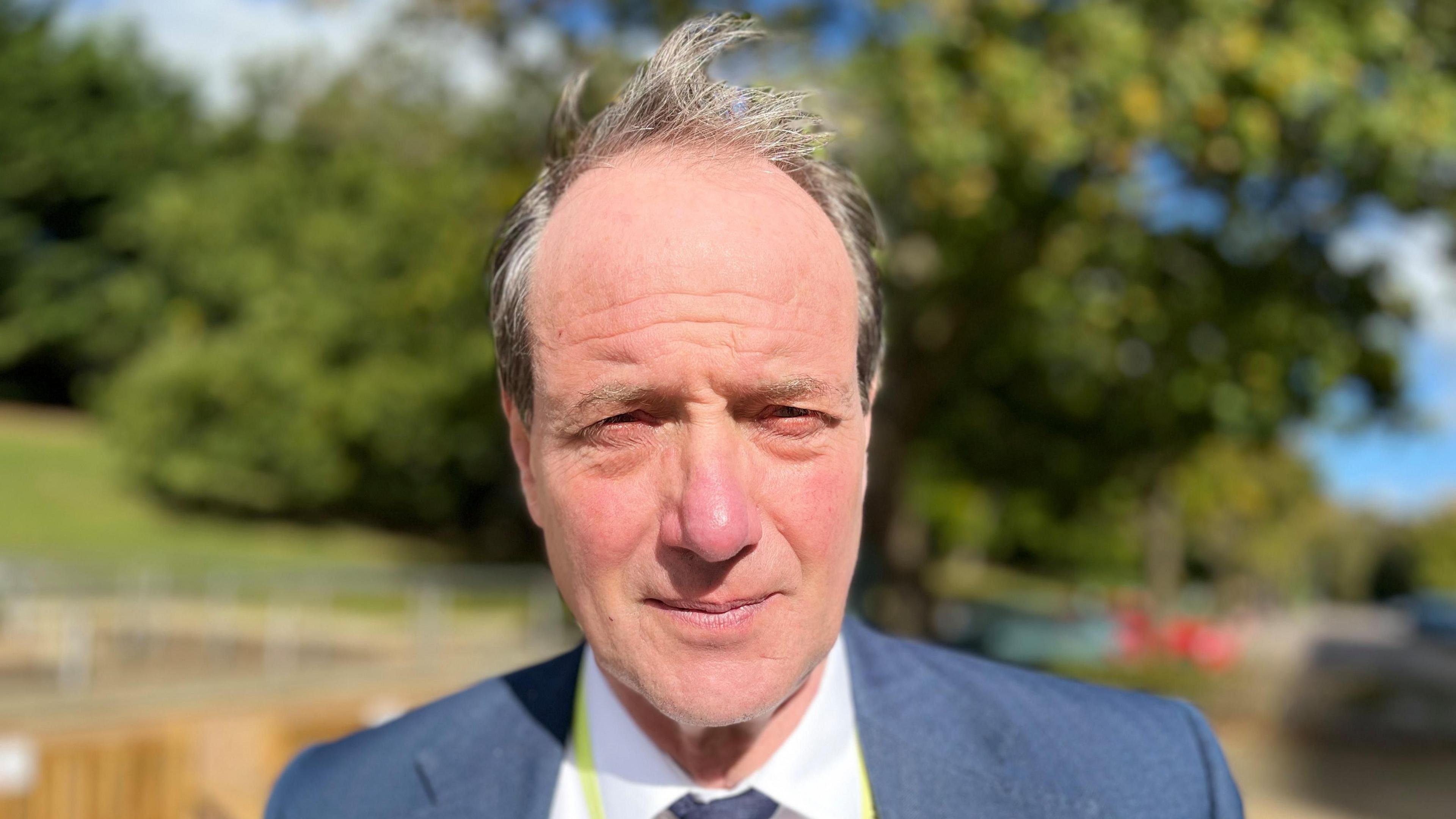
- Published16 February 2024
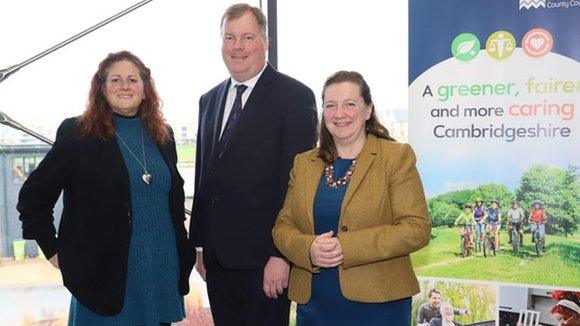
- Published25 June 2024
